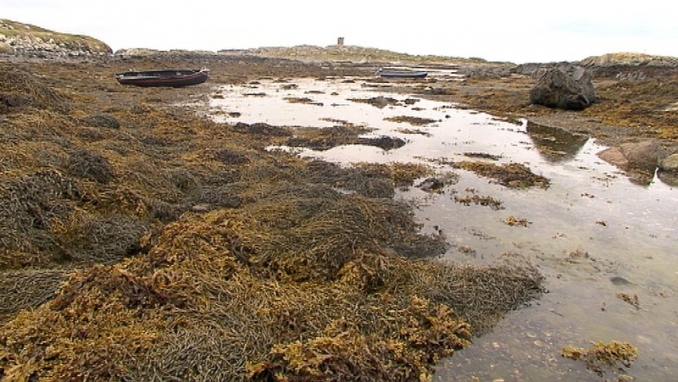Protection of traditional seaweed harvesting rights in Ireland promised
A call for the protection of traditional rights to harvest wild seaweed has been made by the community group Coiste Cearta Cladaí Chonamara. This has led to 17 applications for licences to harvest wild seaweed being put on hold after the Department of Housing, Planning and Local Government accepted that seaweed harvesting rights already existed in coastal communities. The Attorney General advised that the Department should not licence harvesting in an area where a right already exists unless it can be certain it will not interfere with this right.
Approximately 40,000 tonnes of seaweed is harvested in Ireland, more than 95 per cent of it naturally grown. It pruduces high-value fertiliser as well as health food, animal probiotic, cosmetic and supplies to therapy sectors. There are 6,500 rights related to seaweed, registered in seven counties along the coast of Ireland; Cork, Kerry, Limerick, Galway, Mayo, Clare and Donegal. Canadian company Acadian Seaplants, which bought out State seaweed company Arramara Teo for an undisclosed sum in 2014, is one of a number of applicants seeking harvesting licences on shoreline extending from north Clare to west Mayo. Community groups had raised concerns that traditional rights and local employment could be restricted if companies are licensed directly. Individual harvesters would normally have supplied Arramara in the past.
In making the decision to put the new licence applications on hold, Ireland's Minister of State for Planning and Local Government said he was “very conscious of the role played by seaweed harvesters up and down the west coast of Ireland over many generations” and the” positive economic contribution which their efforts have made to their communities”. He also added: “I also respect the heritage of seaweed harvesting and the way in which they have protected and safeguarded the resource through sustainable harvesting practices.”






